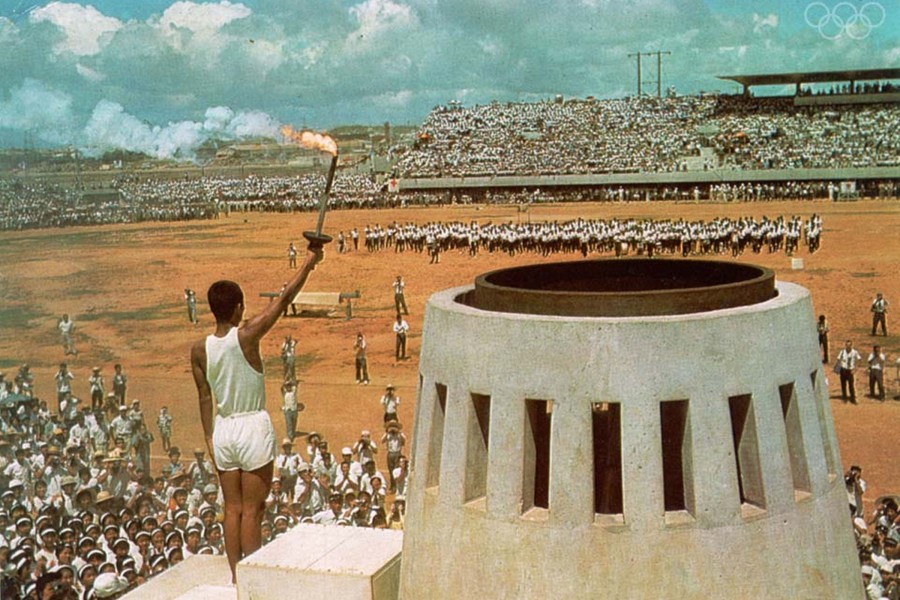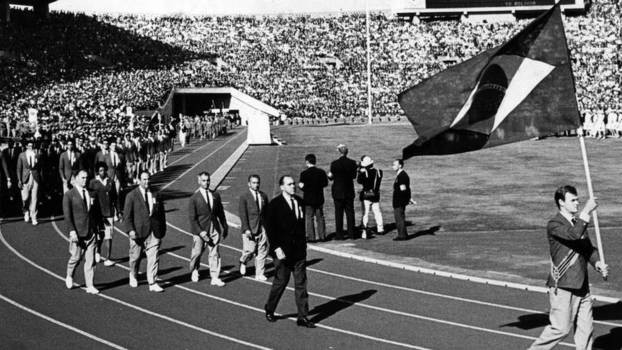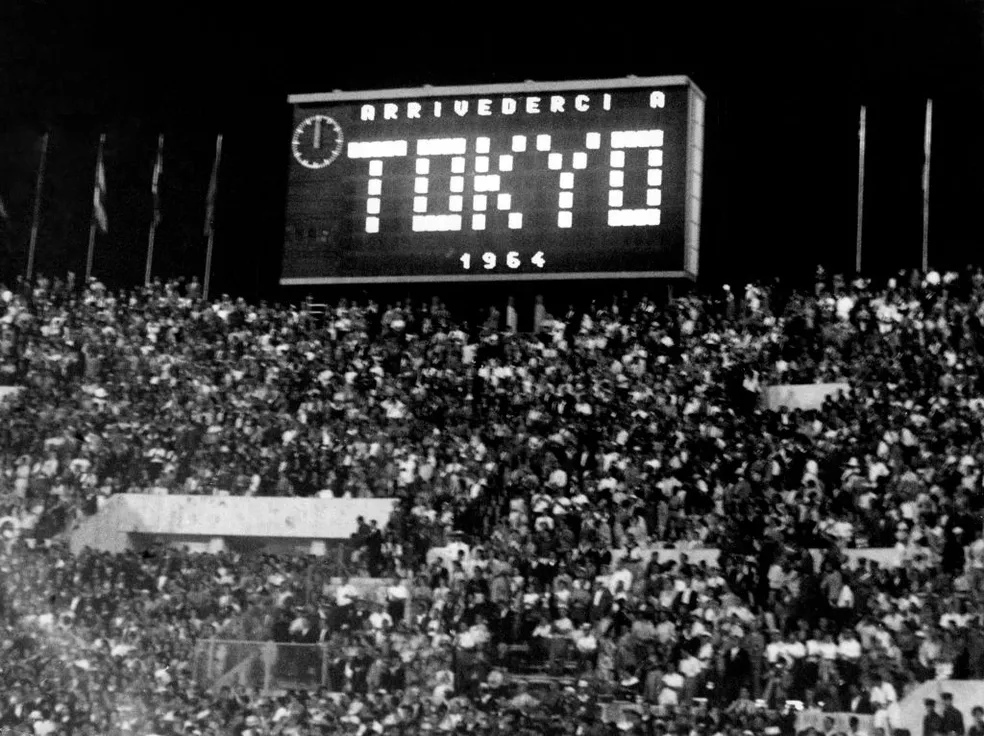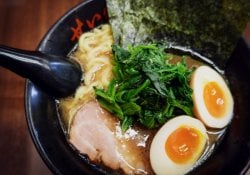This year (2021) the olympics and Paralympics are being held in Tokyo, Japan, and this is even the second time since the memorable 1964 Games, when the country and Japanese culture gained worldwide attention.
At that time, there was still no internet, and even commercially, Japan has always been more closed, until then. With the televised event, people were surprised and many fell in love with Japanese customs, traditions, philosophies, products and technologies.
So, in this article we will contextualize the great event of 64, talk about its importance for Japan, in parallel with the current context of the 2020 Olympics, which are taking place in 2021.
We will also cover a landing on the public opinion of the Japanese and we will tell a little of the history. Read on to get a better understanding of the subject in general. Come on!

Índice de Conteúdo
The year 1964 and the post-war period
In 1964 the whole world was still living in a climate of recovery, reconstructing history after the end of World War II in 1945. In this context, Japan was one of the countries most extensively affected, mainly by the nuclear tests in Hiroshima and Nagasaki.
However, there are several reasons for a country to want to become an Olympic host, such as investing in the tourist sector, or even in a more patriotic sense, to rescue a certain national pride of its citizens.
So, when deciding to run to host the games, less than 10 years after the attacks, Japan was highly strategic in making the people flow counter in the country to break records, as well as several other local economic fronts.
This was a great social maneuver to help rebuild the country: in this way, both sportingly and culturally, the Japanese government was able to successfully change the stigma that the country had for the rest of the world until that moment.
It was when, ceasing to be a militarized country, it started to stand out for being a modern, very technological nation, synonymous with great productivity and innovation, at the same time that they were known for being wise, and leading a zen, more lightly.
Mainly because they invested heavily in the theme, inspired by science fiction and space, marrying very well with the historical moment, which can be defined in detail as follows:
The former Soviet Union and the United States were in a race to get to the moon, investing heavily in technologies to make spacecraft lighter and in basic equipment, such as a level sensor.
Thus, this climate of the Cold War, aroused a lot of interest in the public regarding technology. And the Japanese government invested in modernity and futuristic ideas, like the Shinkansen, the famous bullet trains, in addition to the construction of the imposing Tokyo Tower.
Even today, the shinkansen, for example, remains modern, being an incredible means of transport, so think about how, back in 1964, it revolutionized the world in terms of technological possibilities.
The result was the positioning of the country as an example of infrastructure, industrialization and advancement, which also remains until today, responsible for several new technologies of internet equipment, automation and robotics.
In addition, the Japanese government has also been very successful in working on the image of eastern peacefulness, with a strong concern to show itself apart from any interest in possible wars.
In a beautiful symbolic act, in 1964 the “Flame of Peace” was lit in Hiroshima, which is still maintained today.

The year 2021 and the Covid-19 pandemic
In 2020, the year scheduled for the Tokyo Olympics and Paralympics, the planet was at the beginning of what would be one of the greatest health and health crises of humanity, the Covid-19 pandemic.
of large cargo transport companies, to the most diverse sectors that had to reinvent themselves in this context, the Olympic Games were not left out.
After the cancellation of the event in 2020, on July 23, 2021, the biggest Olympic event in the world since Ancient Greece began. But this year, without an audience, there were many problems and discussions regarding its realization.
Critics leading up to the event
This edition, exceptionally, has a considerable lack of supporters: most of the Japanese population was in favor of canceling the Tokyo Olympics and Paralympics, which were already scheduled for July and August of this year, respectively.
In a report in May of this year, it was found that 87% of the Japanese feared that the event would lead to a significant increase in the number of cases of the disease in the country.
These data are from the largest Japanese news agency, the Kyodo News. And public rejection had already decreased, compared to March, the previous month, from 63 to 57% of people who opposed the event.
During this period, 9 prefectures in Japan placed their cities in a state of emergency due to the number of cases of people with Covid-19 who had serious clinical complications.
Since the rescheduling in 2020, the International Olympic Committee, the IOC, had already made it clear that the games would not be postponed again, but that a "industrial scale” to weigh the risks.
The arrival of delegations with coaches, athletes, officials and other members of the media, in addition to tourists who decide to expose themselves, would obviously lead to a greater spread of the virus in the country.
So, since 2020 there have been protests against the event. At the beginning of 2021, Japanese coaches and athletes also took a stand on their social media and interviews, against games during the pandemic.
There were protesters in front of Tokyo's National Stadium in March, where the opening ceremony was later held, silently, without an audience.
There were also public movements during the passing of the Olympic torch in Nagano, in addition to discussions by the Japanese press on the subject.
The security protocols
As an outstanding company of thermometer calibration, since the cancellation in 2020, the government has already postulated protocols to control the transmission and increase in cases of the disease during the Tokyo Olympic Games.
International bodies such as the IOC mentioned above, the International Paralympic Committee (IPC), and the Japanese authorities have published and revised several guidelines since then.
But all athletes and members were tested, and they were in what was called the “Olympic Bubble”, a total restriction of all participants to hotels, stadiums, training centers, arenas and other facilities.
Thus, the interaction between the participants and the Japanese people was limited, a very intelligent action for the realization of the event.
In addition, foreign fans were banned from entering the country in March. And all games are being played without spectators, so all monitoring is done only through digital media.
The fact is that Japanese citizens are culturally more aware of issues such as self-care and caring for others.
Wearing masks, new fashion items in the modern world, was already very common in work environments, when people suffered from contagious diseases, such as the flu itself.
In places such as the offices of accounting Service or, what makes even more sense, public places such as subways and restaurants, for example, it was not uncommon to see Japanese in masks, before the pandemic.
The result
However, as there was a huge investment and strategic elaboration on the most diverse issues, such as:
- Questões sanitárias;
- Educação da população;
- Tecnologia desenvolvida para a saúde;
- And technologies aimed at the execution of sporting events.
The result we are observing is an excellent control of the number of cases and deaths.

Final considerations
As in the 1964 Olympics, Japan was able to show itself as a very well-structured country, with an outline of true security protocols, followed by everyone, from athletes to companies, for example, weigher and packaging.
Well, in addition to everything discussed in this content, the next major sporting event in the world, the Winter Olympics, in 2022, is scheduled for another Asian country: Beijing, China.
This only generates new controversies about the real need and the way in which this next event will be conducted, especially in this scenario of uncertainties that we are experiencing.
However, the Olympic Committee of China has already provided extra doses of vaccine for the immunization of athletes, which is a good measure, but does not cover the whole problem, as there are many speculations and criticisms about the possible presence of the public.
Finally, it's time to watch sports and cheer for your country, while staying safe indoors!





